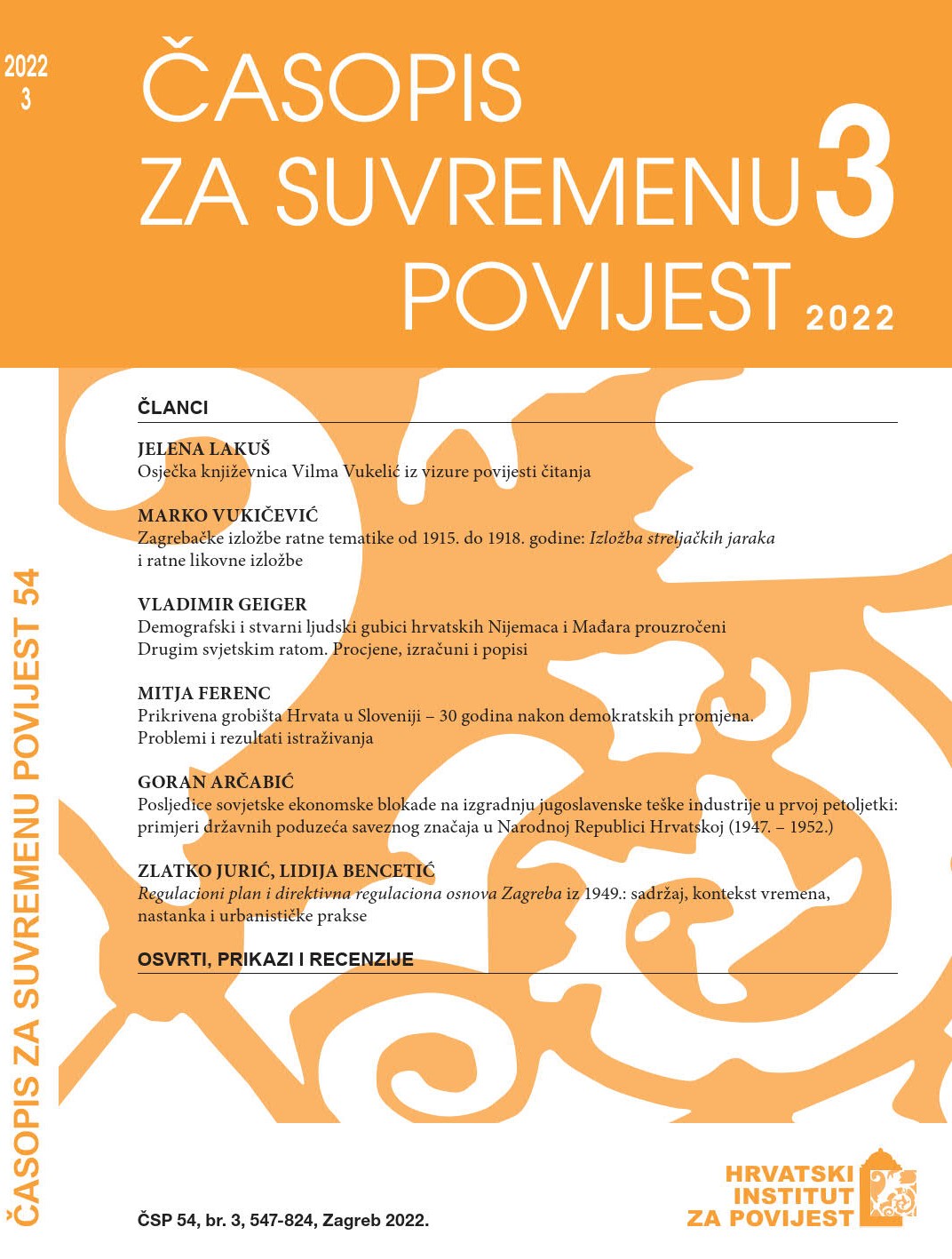Posljedice sovjetske ekonomske blokade na izgradnju jugoslavenske teške industrije u prvoj petoljetki: primjeri državnih poduzeća saveznoga značaja u Narodnoj Republici Hrvatskoj (1947. – 1952.)
The Consequences of the Soviet Economic Blockade on the Construction of Yugoslav Heavy Industry in the First Five-Year Plan Period: Examples of State-Owned Enterprises of Federal Importance in the People’s Republic of Croatia (1947–1952)
Author(s): Goran ArčabićSubject(s): Economic history, WW II and following years (1940 - 1949), Post-War period (1950 - 1989), History of Communism
Published by: Hrvatski institut za povijest
Keywords: Five-Year Plan; heavy industry; Cominform; economic blockade of Yugoslavia; Željezara Sisak; Đuro Đaković (company); Rade Končar (company);
Summary/Abstract: Before adopting the Law on the Five-Year Plan for the Development of the National Economy (1947–1951), the Yugoslav political leadership was somewhat aware of the challenges associated with implementing the Soviet methodology in Yugoslav economic practice. From the beginning of the application of the Law in 1947, these problems became concrete, numerous, and diverse. A hypothetical question is: could the Yugoslav Five-Year Plan have been realised in the initially conceived way and with the foreseen dynamics? The impact of the economic blockade after the Cominform resolution of 1948 on implementing the Yugoslav Five-Year Plan and developing heavy industry are relevant questions from a historiographical perspective.This paper tries to confirm the hypothesis that the economic blockade of Yugoslavia by the Soviet Union and the countries of people’s democracy made it impossible to implement the original ideas regarding the planned industrialisation. The blockade was a catalyst for changes in Yugoslav society, so the economy was decentralised. However, the blockade also had a decisive effect on the shift in priorities, dynamics, and the direction of construction and development of Yugoslav heavy industry.In 1949, the Federal Ministry of Heavy Industry reduced investments at the level of companies that worked in its department. Appointed commissions also conducted thorough audits of capital construction projects. Due to the blockade, the construction of some factory plant and buildings was stopped, delayed, or significantly extended (for example, the company Željezara Sisak). Suspensions and obstructions of the contracted deliveries of technologies, equipment, semi-finished products, and raw materials from the countries of people’s democracy as well as goods that were supposed to have come through reparations from Hungary conditioned the replacement of imports with domestic production. Decisions on import substitution meant a shift in production programmes for some heavy industry companies. In order to achieve the new goals, it was necessary to build facilities and infrastructure that were not planned at the beginning of the implementation of the Five-Year Plan (1947).Some heavy industry companies implemented radical changes in their operations and profiled themselves towards the production of previously exclusively imported equipment (for example, the company Rade Končar) or the provision of services for industry (for example, the company Đuro Đaković).
Journal: Časopis za suvremenu povijest
- Issue Year: 54/2022
- Issue No: 3
- Page Range: 689-722
- Page Count: 34
- Language: Croatian

